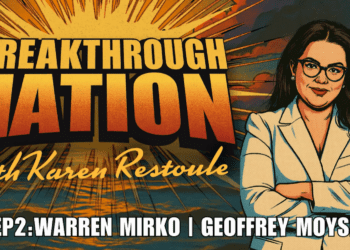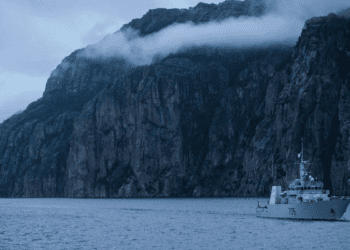In The Globe and Mail, MLI managing director Brian Lee Crowley writes about the urgent need for western nations to bind China to a set of fair trade rules “while the rest of the trading world still enjoys a strong negotiating position. Given current trends, that strength is rapidly dissipating.” China has flouted various aspects of international trading systems, but “we are rapidly moving into a very different world, where almost every major country will have China, not its closest neighbours, as its largest trading partner,” writes Crowley.
China conspicuous by its absence from major trade talks
Special to The Globe and Mail
The argument from self-interest is an easy and obvious one to make when you understand that international trade generally grows more quickly than national economies.
That turns governments hungry for prosperity into active trade promoters. That in itself is enough to explain trade negotiations to link Canada and the EU, or many Pacific Rim countries in the Trans-Pacific Partnership.
But a deeper and subtler strategic dimension is also at work: The need to bind an economically resurgent China to a set of fair-trade rules while the rest of the trading world still enjoys a strong negotiating position. Given current trends, that strength is rapidly dissipating.
In 1978, China represented less than 1 per cent of the world’s trade. By 2010, its total imports and exports of merchandise had risen 143 times, and the country now accounts for roughly 10 per cent of global trade.
According to the World Trade Organization, China is the largest merchandise exporter in the world, and the second largest importer. It has surpassed the United States in the combined value of its imports and exports. Citigroup predicts that China will maintain that top spot for the next 50 years, and the general consensus is that Beijing will have little difficulty in maintaining the 10-per-cent annual growth rate in trade that underpins its dominance.
This in itself is no reason to panic, but it is cause for a sober assessment of where China is headed.
While China might lead in merchandise trade, the United States leads strongly in services. Moreover the U.S. economy, still twice the size of China’s, is less dependent on trade.
China’s increasing share of global trade is largely an overdue redress of international imbalances rather than evidence of Western decline.
All this international trade takes place within institutions largely inspired by Western countries and their allies. The EU, the WTO, the North American free-trade agreement and other trading managers grew out of discussions dominated by countries characterized by the rule of law, liberal democracy and a tradition of rules-based multilateralism. Trade is largely based on rules of non-discrimination among partners and dispute settlement within a framework of rules.
China is only weakly committed to this approach, and has repeatedly flouted various aspects of international trading systems, through currency manipulation, flagrant disregard of intellectual property rights and discriminatory practices, such as its sudden ban on the export of rare-earth elements, a vital component in modern electronics.
This mattered little when China was a bit player in trade matters. But we are rapidly moving into a very different world, where almost every major country will have China, not its closest neighbours, as its largest trading partner. Countries such as Australia have already seen their economic centre of gravity swing away from the United States and toward China.
What becomes of regional trading blocs such as the EU given that, by the end of the decade, it is likely that Germany’s trade with China will be twice as large as with France, the trading relationship on which the EU was founded?
These considerations are front and centre for those responsible for trade policy in both Western and emerging economies.
We are at a sweet spot right now, where China desperately wants to be accepted and recognized as a major economic power but is not yet in a position to dictate the institutions and rules under which trade will be carried out.
Its desire to join the WTO gave other countries significant leverage, and China’s behaviour improved by the time it joined the group in 2001. This is one of the main reasons the Trans-Pacific Partnership is being negotiated without China at the table.
Far-sighted trading countries are hard at work trying to ensure that the emerging Chinese trading Gulliver is tightly tied into a network of existing institutions and practices, which China must seek permission to join.
The alternative is that in 20 years, China will be making the rules and we’ll be the ones asking about the price of admission.
Brian Lee Crowley is managing director of the Macdonald-Laurier Institute.




